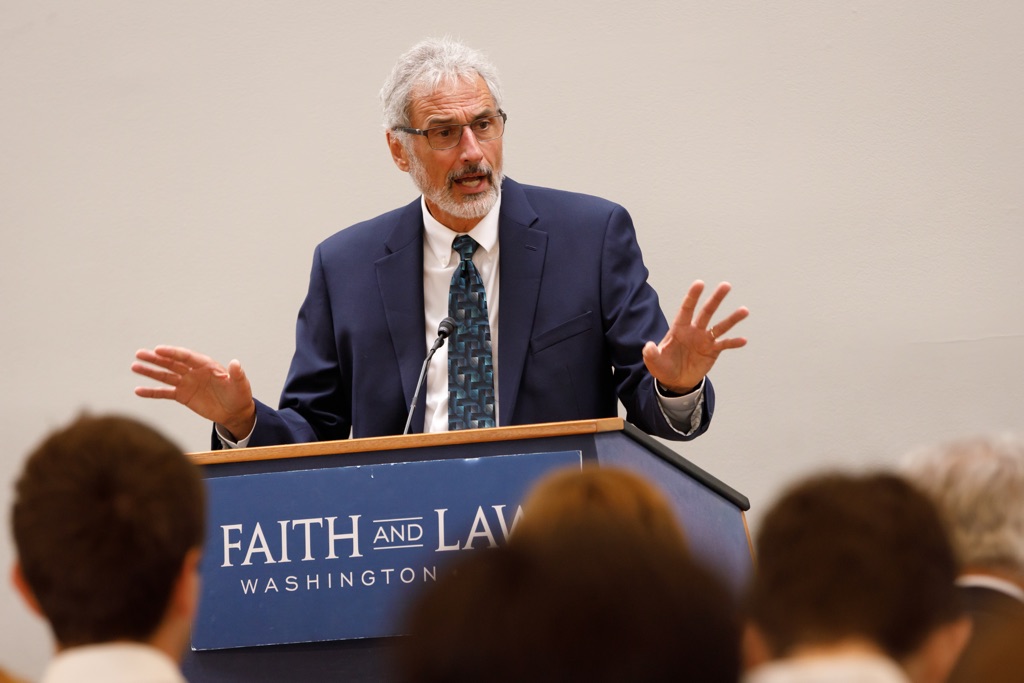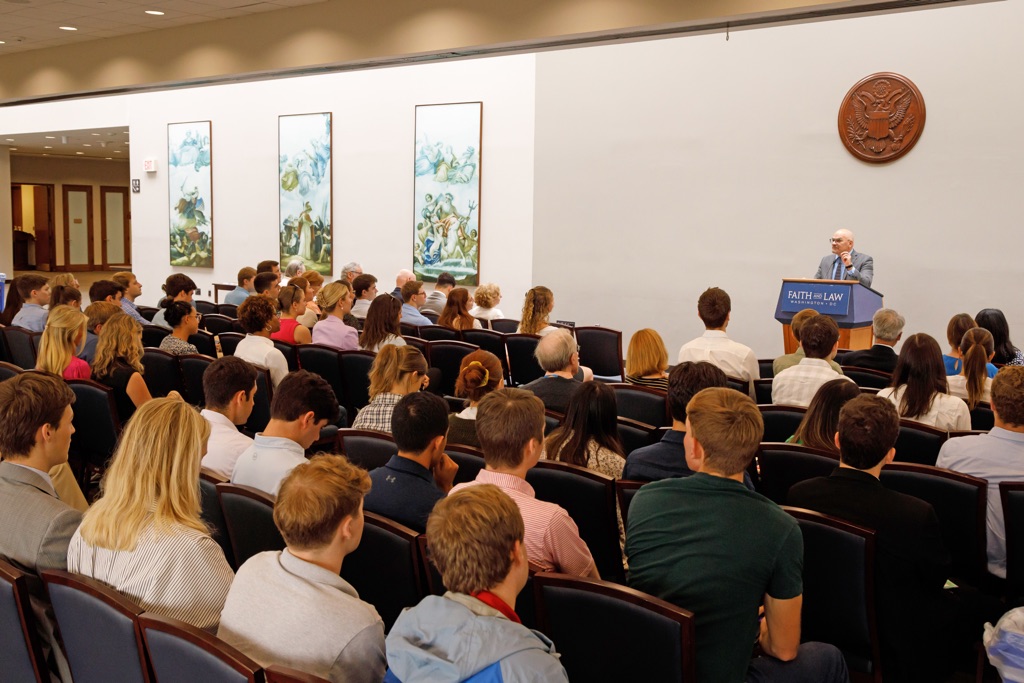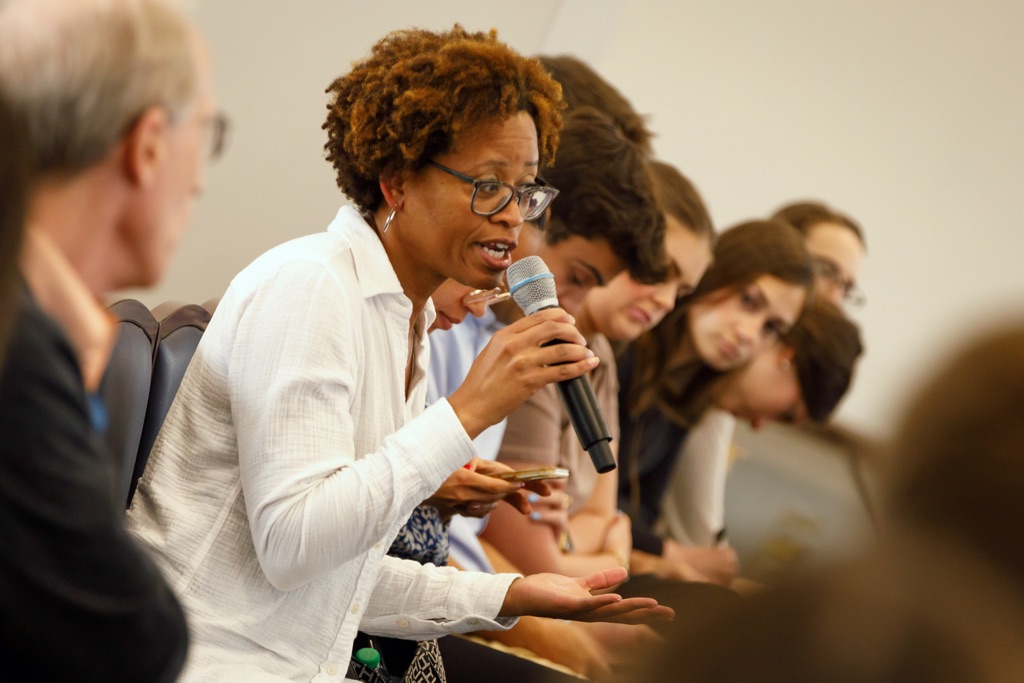Ends and Means
Watch or listen to:
In the first quarter of 2024, Faith and Law served a rich menu of theological reflection for both congressional staff and Members. Our speakers addressed the need for our faith to inform both our policy agenda and the means by which we strive to achieve it. As Os Guinness said, “We need to do the Lord’s work in the Lord’s way.”
Our guest lecturers have tacked back and forth in what British novelist Patrick O’Brian might have called a turbulent “dirty sea” between policy means and ends:
- Drawing from his new book, The Spirit of Our Politics, Michael Wear warned against nursing “cultivated anger” and urged staffers to be humble, generous and open with political opponents. “Pluralism means accepting those we don’t like as neighbors.”
- Anne Snyder, editor of Comment magazine, called for a more neighborly politics by recounting the dozens of Scriptures that employ the phrase “one another.” What would a good turn look like on Capitol Hill these days? What might happen if someone turned the other cheek?
Good words, yet, civility doesn’t always “answer.” (O’Brian again). To overly focus on the “how” of public policy can lead to an obfuscation, or even denial, of the “what.” Some policy ends matter a great deal and are worth the moral effort to slug it out.
According to church historian Dr. Robert Godfrey, the gnashing we hear is the death-rattle of Christendom, the state-sanctioned religio-moral framework that has defined Western civilization since the 4th century. Taking its place is the “new religion” of radical individual freedom and its ever-growing set of rights untethered from the sovereignty of God. The friction intensifies when the “new religion” forces its way into the personal realms of conscience and faith, and the societal spheres of family and church.
In these confused seas, some choose to withdraw while others would re-enshrine Christendom. Godfrey finds hope in the “sphere sovereignty” of Abraham Kuyper who saw the darkening skies of fascism with prescient clarity. “If we don’t recognize God’s sovereignty, then we will be left either with the sovereignty of state or the sovereignty of the individual as the source of rights and responsibilities. Either of these must necessarily lead to tyranny.”
Civility as a “means” is an insufficient “end.” But ends do not justify the means. Tacking between them requires godly humility, wisdom and skill. Even in politically turbulent times, Christians are called to be faithful to both.
Faith and Law is a non-profit ministry started by policy makers and for policy makers.







